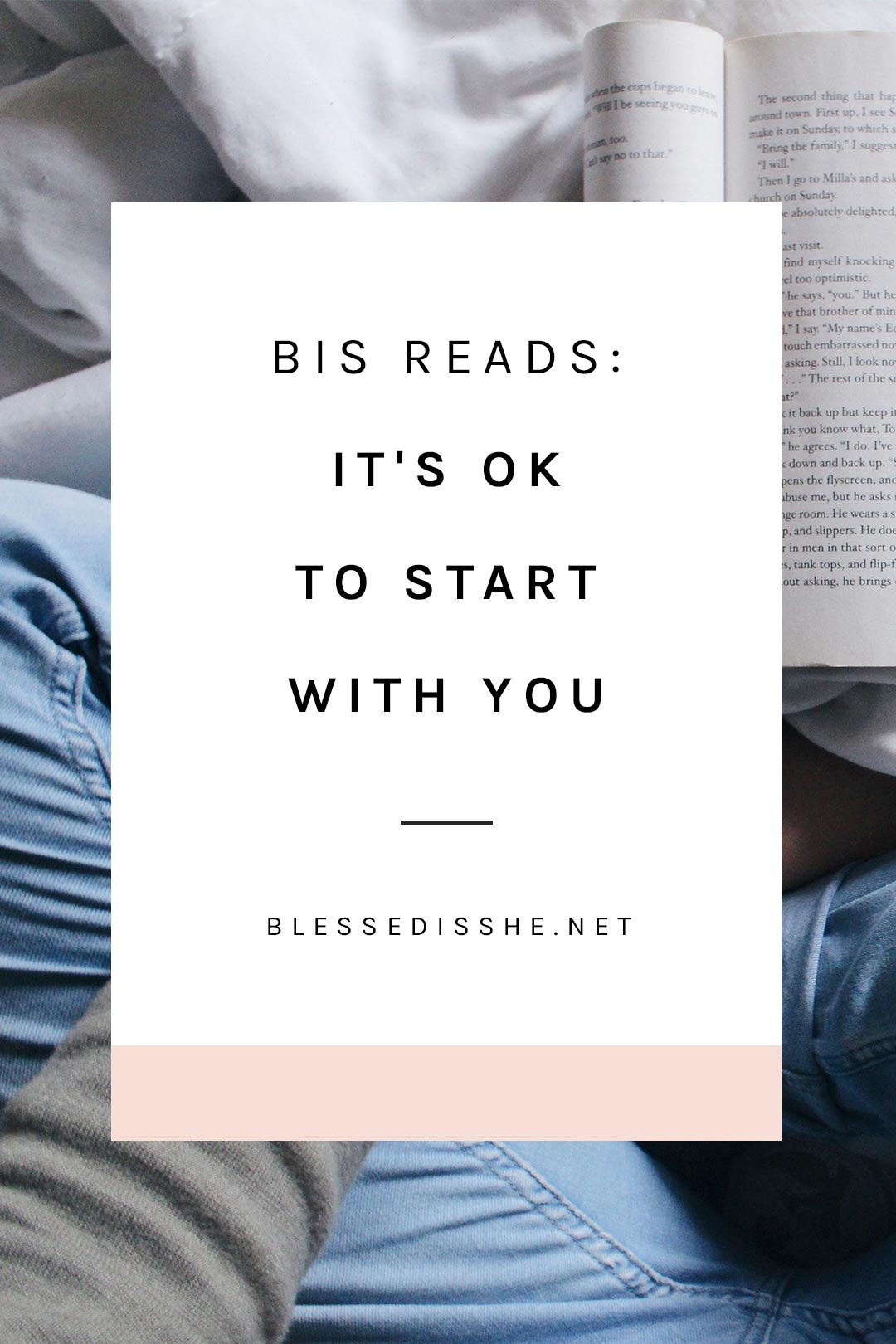
Women, more than men, in their desire to give relationally, tend to want to give without taking. Women want to suffer their boundaries in the name of love and let the well run dry. Writers and influencers abound in the discussion of self-care.
But how? And why is it so hard?
It's OK to Start with You
In It’s OK to Start with You, Julia Hogan, a young female psychotherapist in the Chicago area, shares the answers and her understanding of the difficulties in this Christian self-help book.
Her title makes it clear what this little book is about. It seeks to teach me it’s OK to start with myself. Her message answers the predicted objections that self-care is:
- self-centered,
- egotistical, and
- a waste of time.
Who Should Read this Book?
Naturally, there are benefits for everyone (any good author would say so). The book speaks primarily to those who have been taught to put others before themselves (a Christian principle). It addresses how this mentality can morph into trampling on ourselves to do so.
It’s reflection questions would serve amazingly well as a women’s small group or book club activity. While self-help books abound in the secular market, we have needed to grow the pool of Catholic female experts giving us advice.
![]()
![]()
The Author's Experience and Expertise
Written to the reader, Hogan, a graduate of the Institute for the Psychological Sciences, draws from her expertise in working with clients suffering from anxiety, depression, and relationship issues. While these books usually contain questionable nuggets, I find Hogan’s theories and foundation entirely sound, albeit for the two or three references to being “the best version of yourself.” More accurately, she generally speaks to one’s authentic self, true self, best self.
Hogan’s informal yet still professional style of writing helps her meet her personal goal that it would be short, clear, free of a lot of psychobabble, full of examples, and something the reader can refer to again and again. She does this exceptionally well. I could refer to cognitive processes, irrational beliefs, etc. Yet she takes each psychological concept and explains it deftly without ever touching the technical terms. Not all passionate professionals can get out of their own head so successfully.
Through and Actionable
Throughout this little book, her writing impressed me with its clarity, conviction and insight into motivation. Hogan has heard it, seen it, worked with it and now shares it with us. I love to read these lessons that I feel sure are ones the therapist has taught again and again. They lay so well on the paper.
Finishing the book, I found no stones unturned. She works so easily addressing the obstacles and excuses. By the end, one feels the only way is forward. For the person excited to act, she even cautions. Take it slow in order to take it successfully. An appendix at the end offers examples of self-care plans and further reading.
Do I Start with Me?
Her words identified my weak spots as I read. They arrested my heart and called out the dark areas where the inner critic had the advantage. I took the quiz, made a plan and have found, she was right. The act of doing something about it shuts the inner critic up and I am better for it.
It is a remarkable little book. It is excellently written and worth returning to, again and again.
Have you read It's OK to Start with You? Is self-care something you struggle with?
BIS Reads: It's OK to Start with You #BISblog //Click to tweet
Kathryn Anne Casey is a graduate of Divine Mercy University, freelance writer, housewife, and mother of four children. Her weekly newspaper column “Here’s to the Good Life!” and blog focus on art, psychology, consumerism and the importance of local community. Find out more about her here.






























